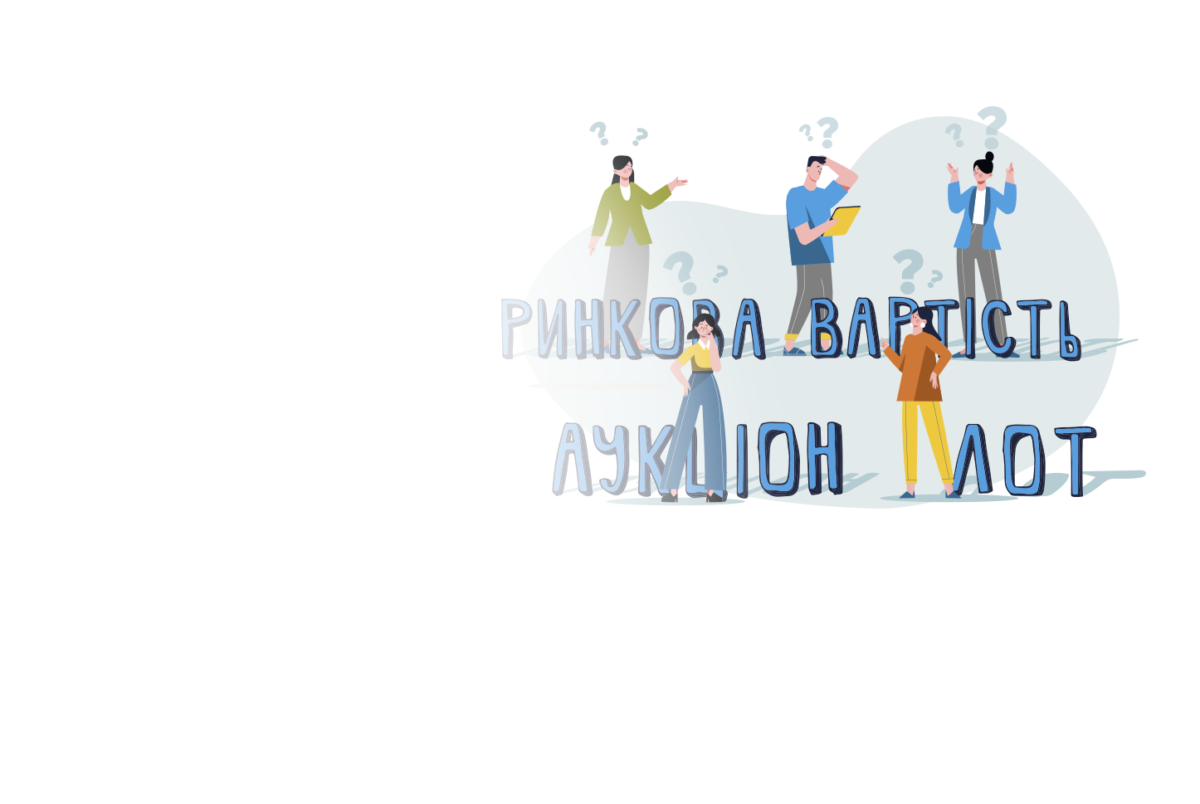

Since 2016, every Ukrainian can buy or rent state property through the ProZorro.Sale electronic platform. In less than 5 years of the platform’s existence, more than 350,000 auctions were held, which replenished the state treasury by UAH 35 bln. At the same time, trading turnover is growing every year. In 2020 alone, the organizers’ income amounted to more than UAH 11 bln.
However, although the figures are impressive, businesses and ordinary citizens are still poorly aware of how these electronic auctions work and what benefits they can bring. Since electronic auctions use professional vocabulary, in this article we will talk about the most commonly used terminology that will help you understand the sales language and the auction mechanism itself.
How is state property sold?
Previously, state sales were usually held behind closed doors in government offices, and only informed people had access. Now state property is sold or leased exclusively through e-auctions in the Prozorro.Sale system, for whose creation and launch not a single hryvnia from the budget was allocated.
The Prozorro.Sale platform operates on the principle of “everyone sees everything.” Information about sales plans is public. At the same time, not only each participant, but also anyone can follow the auction online, and after the auction is completed, check all the information and documents of the winner and all other participants in the system. This ensures equal access to bidding, as well as promotes public control and helps the state sell property at market prices.
How does Prozorro.Sale function on the inside?
The ProZorro.Sale electronic trading system is two-level. This means that it consists of a central database (CDB), that is, it combines information about all lots that are offered for sale (the first level). The CDB does not interact with participants, but is only responsible for the smooth operation of the system itself. But the organizers and participants “communicate” with the system through accredited electronic platforms that are connected to the system (second level). The task of these platforms is to provide quality advisory support to both buyers and sellers. The list of the platforms can be found on the system portal itself.
Who can participate in auctions?
The rules are the same for everyone: the winner is the one to offer the highest price, and not the one who has the necessary acquaintances in the government offices. Registered companies, individual entrepreneurs, and ordinary individuals can take part in an auction. The e-auction takes place simultaneously on all platforms. Automatically, auction participants are those who submitted their bids through any of the connected platforms. Auctions are held anonymously, and the names of participants are made public only after the auction is completed, which helps to minimize corrupt influence.
Professional vocabulary
To feel confident as an auction participant, it is important to understand the “sales language.”
- An auction is a competitive procedure that consists of a repeated price increase, conducted in three stages in real time. Each participant has the right to raise the price at their own discretion, but not less than the minimum auction step set in the bid announcement.
- A lot price is the starting price of the property that is offered for sale or lease. The value of the lot is set based on the book value, except in cases where a new assessment of the property should be carried out.
- A guarantee fee — the amount that is a percentage part of the starting price of the item of sale or lease, which is paid by a potential buyer in the form of cash or a bank guarantee to ensure the fulfillment of their obligation to participate in the auction.
- A lot is an item that is put up for sale at an auction. Such items can be unified property complexes, buildings and facilities, shares of enterprises, vehicles, and even scrap metal.
- An auction organizer. Depending on the type of property ownership (state or municipal), the organizer can be the State Property Fund of Ukraine, its regional branches, executive bodies of territorial communities, privatization bodies, landlords, and in certain cases balance holders.
- A lot passport is a document with the name, qualitative, technical, and quantitative characteristics of an asset.
- A winning lot price is the price set by the buyer, which turned out to be the highest according to the results of the auction.
- Market value is the most likely price at which an item can be purchased under market conditions.
- A participant/buyer is a private individual or legal entity that has expressed a desire to register as an auction participant. Citizens of Ukraine, foreign citizens, as well as legal entities registered on the territory of Ukraine, and legal entities of other countries can take part in the auction. It is prohibited to be a buyer in an auction (Article 8 of the Law of Ukraine “On Privatization of State and Municipal Property” and Article 4, part 4 of the Law of Ukraine “On Lease of State and Municipal Property”) for persons originating from Russia, the aggressor state, as well as for participants who use investments from offshore companies without a transparent ownership structure.
Low awareness and myths about the operation of electronic auctions hinder ordinary citizens and entrepreneurs from profitably buying or renting state property. The “ABC of sales” described in our article is important for understanding the basic concepts of state property implementation, and will also help one boldly participate in auctions and communicate with the system using a “common” language.






